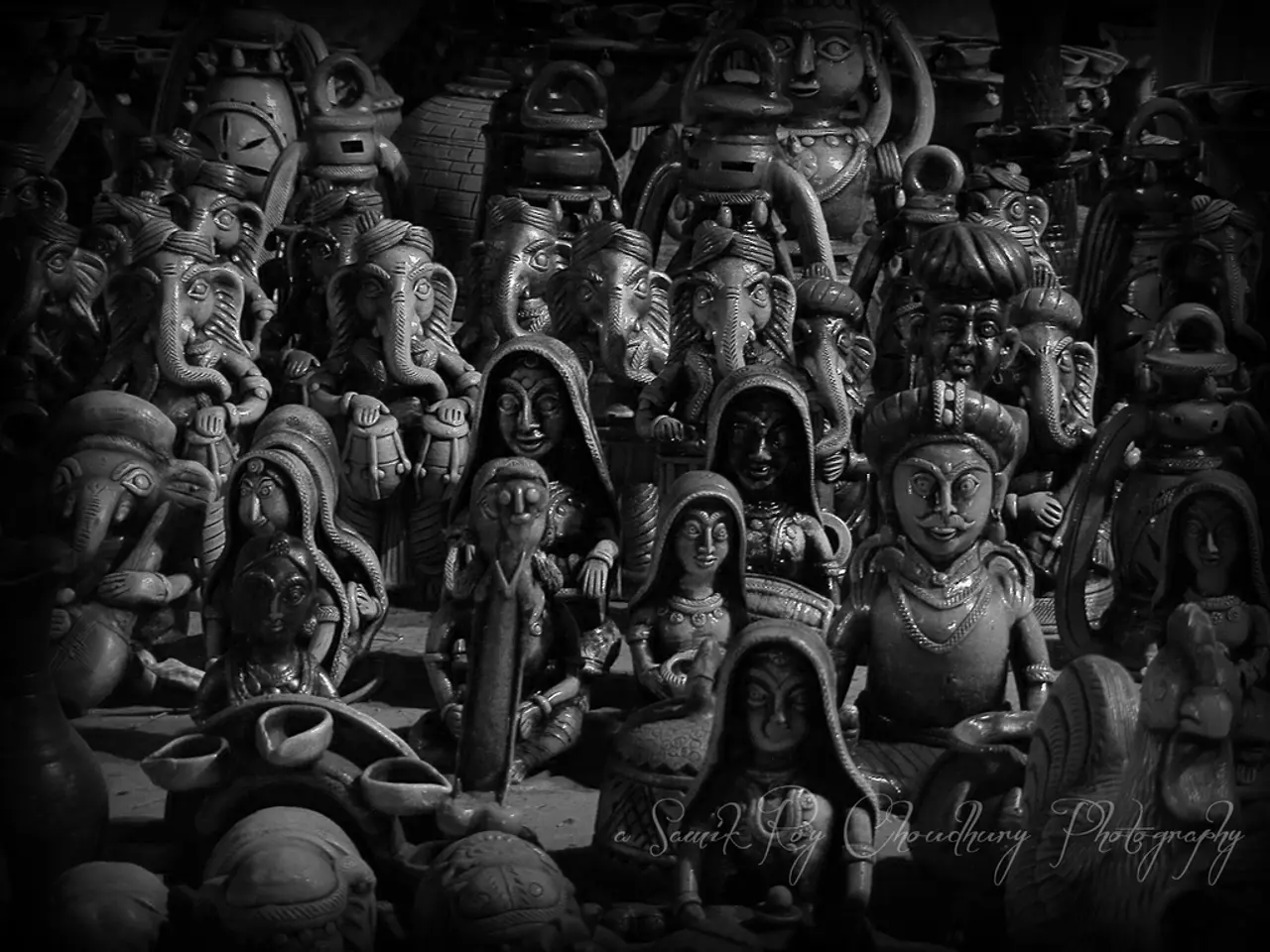Films should remain Gopalakrishnan's focus - not delve into Kerala's identity politics debates
In a recent turn of events, renowned Indian filmmaker Adoor Gopalakrishnan has found himself at the centre of a heated debate over caste and gender politics in the Kerala film industry. At a film policy conclave, he questioned the Kerala government's policy of funding films directed by scheduled caste/scheduled tribe community members and women directors.
Gopalakrishnan's comments were met with controversy, as he argued that funding is often given before these directors have sufficient skills and training in filmmaking. He suggested that the funding amount of Rs 1.5 crore might lead to corruption and that funding should be based on merit and proper training, rather than caste or gender identity.
The filmmaker's remarks were seen as dismissive and casteist by many, sparking protests from fellow filmmakers, including Ministry officials and prominent artists. Critics, including Dalit activist Dinu Veyil, accused Gopalakrishnan of promoting ill will against Dalits, filing a police complaint against him.
Gopalakrishnan's comments were particularly controversial because they seemed to insinuate that Dalit filmmakers were prone to corruption and implied that women and marginalized community filmmakers lacked the skills to justify the funding. This has led to widespread criticism and formal complaints.
It's important to note that Adoor Gopalakrishnan himself has benefited from public film funding in his career, making his comments seem somewhat hypocritical. In the film industry, making a bad movie can lead to rejection from the audience, but in this case, Gopalakrishnan's comments have sparked a broader conversation about accountability in the use of public funds.
The Kerala society, known for confronting public figures who make controversial comments about caste and gender, is constantly evolving, but caste and caste politics remain a persistent issue. This controversy comes at a time when there are ongoing discussions about whether the Kerala government could be spending more on essential services like healthcare, particularly in government-owned hospitals.
This is not the first time a public figure in Kerala has faced backlash for their comments about caste and gender. Classical dancer Kalamandalam Sathyabhama and Yesudas, known as 'Ganagandharvan', have also stirred up backlash for alleged caste-based references and comments about women's clothing, respectively.
Vellapally Natesan, a unique social and political figure, can say and do things his way without fear of controversy. Meanwhile, VS Achuthanandan, Kerala's unique voice, and Manoj Nair are not mentioned in this context.
In the midst of these debates, it is not appropriate for Adoor Gopalakrishnan to suggest changes in the Kerala government's funding policies for films by new directors, regardless of their caste or gender. The focus should remain on promoting merit and ensuring proper training for all filmmakers, regardless of their background.
[1] Times of India, "Adoor Gopalakrishnan's comments on SC/ST, women filmmakers stir controversy," 2021. [2] The Hindu, "Adoor Gopalakrishnan's remarks on film funding sparks controversy," 2021. [3] The New Indian Express, "Filmmaker Adoor Gopalakrishnan's comments on film funding sparks controversy," 2021. [4] Deccan Chronicle, "Adoor Gopalakrishnan's comments on film funding for SC/ST, women filmmakers sparks controversy," 2021. [5] Indian Express, "Dalit activist files police complaint against Adoor Gopalakrishnan for casteist remarks," 2021.
- The controversy over Adoor Gopalakrishnan's comments about film funding for scheduled caste/scheduled tribe community members and women directors has spread across various forms of entertainment and news.
- Social-media platforms have been abuzz with discussions about Gopalakrishnan's remarks, as they seemingly insinuate that Dalit filmmakers are prone to corruption and imply that women and marginalized community filmmakers lack the skills to justify funding.
- The debate has also expanded into the realm of policy-and-legislation, with calls for accountability in the use of public funds for movies-and-tv production.
- Amidst all this, criticism surrounding the car-accidents and crime-and-justice sections of the news has taken a backseat, as the entertainment industry grapples with issues of caste and gender politics.
- As news outlets such as Times of India, The Hindu, The New Indian Express, Deccan Chronicle, and Indian Express continue to cover the controversy, pop-culture and general-news converge, highlighting the importance of responsible speech and accountable governance in Kerala.
- Additionally, the controversy provides a platform for a broader discussion about the balance between fundamental rights and responsibilities, particularly in contexts like healthcare funding, where essential services may well be compromised due to mismanagement and misuse of funds.
- As voices from various quarters weigh in on the controversy, it becomes clear that the debate extends beyond the film industry, reflecting larger questions about identity, opportunity, and accountability in Kerala's society.
- It is now crucial for public figures like Vellapally Natesan, VS Achuthanandan, and Manoj Nair to step forward and contribute to these discussions, ensuring that the complex tapestry of Kerala's society continues to evolve in ways that promote social justice and respect for all.






